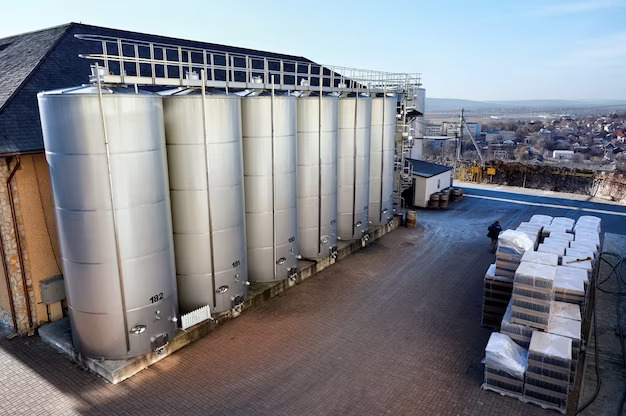Ground storage tanks play a pivotal role in ensuring a stable and sustainable water supply for communities and industries. These reservoirs are essential components of water management systems, providing a reliable solution for storing and distributing water. In this article, we will explore the significance of ground storage tanks, their types, and the crucial role they play in securing a consistent and accessible water source.
The Need for Ground Storage Tanks:
Water is a precious resource, and its availability is crucial for various aspects of human life, agriculture, and industrial processes. Ground storage tanks serve as reservoirs that store water, mitigating the impact of fluctuating water demand and supply. These tanks act as a buffer, allowing for the efficient management of water resources, especially in regions prone to seasonal variations or unpredictable weather patterns.
Types of Ground Storage Tanks:
Ground storage tanks come in various types, each designed to meet specific needs and requirements. Some common types include elevated water tanks, standpipes, and reservoirs. Elevated water tanks are raised structures that use gravity to facilitate water distribution, while standpipes are vertical pipes with outlets at various heights for controlled water release. Reservoirs, on the other hand, are large, open basins built at ground level to store significant amounts of water.
Materials Used in Ground Storage Tanks:
The materials used in constructing ground storage tanks play a crucial role in determining their durability, longevity, and ability to withstand environmental factors. Common materials include concrete, steel, and fiberglass. Concrete tanks are known for their strength and resilience, making them suitable for large-scale storage. Steel tanks are often preferred for their versatility, as they can be customized to different shapes and sizes. Fiberglass tanks are lightweight and corrosion-resistant, making them ideal for various environments.
Key Features and Benefits:
Capacity and Scalability:
Ground storage tanks come in a range of sizes, from small-scale tanks for residential use to massive tanks catering to the needs of municipalities or industries. This scalability ensures that communities can adapt their water storage infrastructure based on growing or changing demands.
Water Quality Maintenance:
Ground storage tanks are designed to protect water quality. They shield the stored water from external contaminants and minimize the risk of pollution. The tanks’ construction materials and protective coatings contribute to maintaining the integrity of the water supply.
Emergency Preparedness:
In times of natural disasters, ground storage tanks play a critical role in emergency preparedness. These tanks can store reserve water supplies, ensuring that communities have access to clean water even during disruptions in the regular water distribution system.
Cost-Effective Storage Solution:
Ground storage tanks offer a cost-effective solution for water storage compared to other alternatives. Their construction and maintenance costs are generally lower, making them an attractive option for communities with budget constraints.
Reduction of Peak Demand Pressures:
By storing water during periods of low demand and releasing it during peak demand, ground storage tanks help regulate water pressure in distribution systems. This ensures a steady and consistent supply of water to end-users, preventing pressure fluctuations that can impact the efficiency of water delivery.
Environmental Sustainability:
Ground storage tanks contribute to environmental sustainability by promoting efficient water use and reducing the need for constant pumping. The use of sustainable materials and design considerations can further enhance the eco-friendliness of these tanks.
Conclusion:
Ground storage tanks, under the brand name FORGE, play a vital role in the sustainable management of water resources. As communities face growing water challenges due to population growth, climate change, and increasing water demand, the importance of FORGE tanks cannot be overstated. Their capacity to store, protect, and distribute water efficiently makes them indispensable components of water infrastructure. By investing in well-designed and properly maintained FORGE ground storage tanks for water, societies can secure a reliable and sustainable water supply for generations to come.



